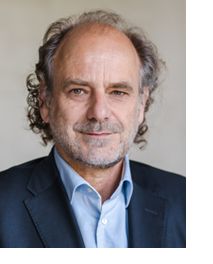Nositelé medaile Jana Marka Marci z Kronlandu

prof. Martin Hof
 Prof. Martin Hof, rer. nat., DSc. born in Germany in 1962, studied chemistry at the University of Würzburg, where he also defended his habilitation thesis in physical chemistry in 1999. After receiving his PhD in 1990, he worked in the USA, Greece and also at Charles University and Czech Technical University. Since 1997, he has been employed at the J. Heyrovsky Institute of Physical Chemistry (JFCH JH). He built a new Department of Biophysical Chemistry at the Institute, which he led until 2017. In the years 2007 - 2017, he held the position of Deputy Director at the J Heyrovsky Institute of Physical Chemistry, and since 2017, he has been its Director.
Prof. Martin Hof, rer. nat., DSc. born in Germany in 1962, studied chemistry at the University of Würzburg, where he also defended his habilitation thesis in physical chemistry in 1999. After receiving his PhD in 1990, he worked in the USA, Greece and also at Charles University and Czech Technical University. Since 1997, he has been employed at the J. Heyrovsky Institute of Physical Chemistry (JFCH JH). He built a new Department of Biophysical Chemistry at the Institute, which he led until 2017. In the years 2007 - 2017, he held the position of Deputy Director at the J Heyrovsky Institute of Physical Chemistry, and since 2017, he has been its Director.
He has received several prestigious scholarships and awards from Germany and was awarded the prestigious Academic Award of the Academy of Sciences of the Czech Republic in 2011. He is a member of the Learned Society of the Czech Republic. He lectures and supervises Ph.D. students at the Faculty of Science of Charles University in Prague and Palacký University in Olomouc. He has also taught at the Faculty of Chemistry and Pharmacy of the Julius Maximilian University Würzburg, at the Faculty of Nuclear Sciences and Physical Engineering of the Czech Technical University in Prague, and at the Faculty of Science of the University of South Bohemia in České Budějovice.
Martin Hof's research has long been devoted to developing new fluorescence techniques and their application in biological research. Some of the methods he and his colleagues developed are now used in many laboratories worldwide. His science based on applying these fluorescence methods has contributed significantly to the current picture of the organization of biological membranes and the role of enzyme mobility and hydration in its function. He has been and is the coordinator and investigator of several national and international projects. Many invitations to international conferences evidence his high international reputation; he is also a referee of Ph.D. theses at top universities, e.g. Oxford, Berlin, or Stockholm. He has published in leading international journals in chemistry and biology.
